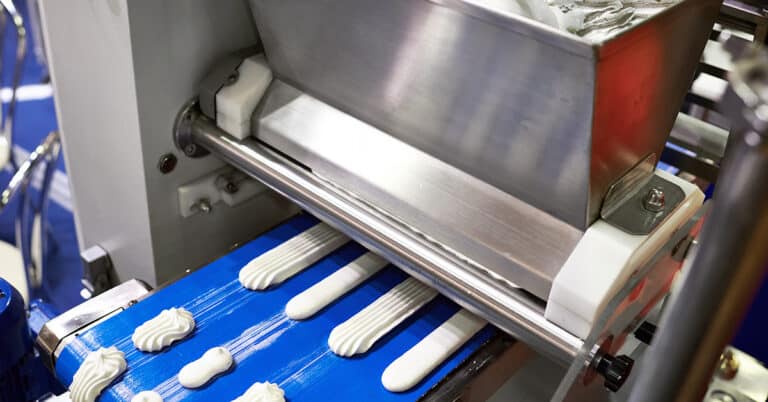Why is maintenance — proven to be a key factor in extending equipment life, reducing downtime and lowering overall costs — so often overlooked in many operations until it becomes an emergency? There are several possible reasons:
- Lack of available resources — time or personnel
- Inconvenient timing
- Disorganization or lack of planning
- Misunderstanding of the benefits and importance of maintenance
In many cases, several of these factors will exist at once. They create a maintenance deficit that, if not addressed, can add up to a significant sum of avoidable costs in operations, emergency repairs, part defects and facility safety. These maintenance issues do not arise on account of purposeful negligence by facility management. They result from resource shortfalls and prioritization decisions that naturally place core production processes at the top.
How do manufacturers address these issues?
In order to solve these problems and ensure that maintenance is performed as intended and required, many manufacturers work with outsourced providers and sign an annual maintenance contract.
What is an annual maintenance contract?
An annual maintenance contract, or contract maintenance agreement, is a business arrangement for ongoing maintenance, agreed on by the manufacturing facility and a service provider. This ensures optimal performance throughout the year.
As opposed to ad-hoc or emergency maintenance services, industrial contract maintenance covers all aspects of maintenance on a plant’s critical assets, including:
- Scheduled preventive maintenance
- Regular checkups and diagnostics
- Emergency repairs
- A dedicated workforce of skilled, certified technicians
- Documentation and process development
- MRO asset management, including inventory optimization and storeroom management
In addition, a comprehensive annual maintenance contract can include smart technology implementation, training of the existing workforce, safety training, procedure implementation and more.
The benefits of annual maintenance contracts
An AMC (annual maintenance contract) offers numerous benefits applicable across many manufacturing industries, especially aerospace, automotive, building products, heavy equipment, consumer packaged goods, paper/pulp and tire/rubber fields.
When your business chooses an annual maintenance contract, the benefits can include:
- Predictable, fixed costs: As-needed maintenance planning can quickly spiral into unforeseen costs that significantly affect the entire budget. With a comprehensive annual maintenance contract, you can control and account for all maintenance costs on a long-term, fixed basis. By reducing variability in your maintenance budget, you can reliably allocate funds throughout the rest of the business without fear of overruns in maintenance or shortfalls elsewhere.
- Guaranteed access to maintenance support at any time: An old cliché holds true for maintenance: the only thing you can predict about it is that it will be unpredictable (unless you’re using predictive maintenance technology, of course)! Maintenance contracts ensure that, no matter what the time or the situation, you will have an expert available to resolve the problem. This provides a safeguard that in-house staff may not be able to offer, since it is often not cost effective to maintain round-the-clock expertise for every issue that arises. However, it is the job of a contracted partner to provide multi-craft, experienced maintenance technicians that will solve any and all maintenance-related problems.
- Logistical improvements: A comprehensive maintenance contract takes a holistic approach to all aspects of your maintenance practice. This approach yields fundamental logistical benefits that are designed to improve your bottom line.
- Extended equipment life: All too often, maintenance is treated as the practice of addressing breakdowns when they arise – when it should actually be an ongoing process with the primary intent of keeping equipment running in top shape for as long as possible. By providing the resources to consistently adhere to an effective scheduled or predictive maintenance strategy, a long-term maintenance contract is designed to improve equipment operation, ultimately resulting in greater production efficiency.
- Reduced downtime: Building on the benefits of adhering to scheduled maintenance, maintenance partners aim to minimize or eliminate downtime caused by equipment malfunctions. The long-term, holistic approach of an annual maintenance contract can allow for downtime planning, ensuring scheduled maintenance occurs at the least disruptive times in the production schedule.
- Data-driven decision making: With predictive maintenance technologies empowered by Industry 4.0, you can gain data-driven manufacturing decision making. You’ll have a clearer picture of the health of your equipment and be able to plan ahead for your maintenance needs. This can help prevent unexpected downtime and provide you with better productivity.
- Enhanced technician skills: When you have an AMC contract, your technicians can learn more about your systems thanks to the software-generated insights and diagnostics you may receive. With the information they receive from any smart technology implemented throughout your facility as part of the arrangement, they can learn to troubleshoot common problems more effectively and help your processes become more efficient.
- Improved safety: It should go without saying, better maintenance leads to safer workplaces. Equipment that breaks down unexpectedly or doesn’t perform at optimal levels may present a safety risk to employees. Being able to stay in front of smaller issues before they have a chance to develop into more-serious concerns that could jeopardize workers is another critical benefit that AMC contracts can provide to your operations.
- Optimized spare parts management: Maintaining your spare components can be a delicate balancing act. You don’t want to be left empty-handed when your equipment fails, but carrying too much inventory creates issues with organization, space and spending. However, because an annual maintenance contract can include predictive analytics, this can be less of a problem. This software can provide advanced inventory forecasting so you won’t have to worry about overstocking or shortages of critical parts.
- Peace of mind to focus on core competencies: In a scenario where management is unable to prioritize maintenance, there is a constant sense of unease and scramble to complete critical maintenance tasks, resulting in negative effects on other parts of the operation. A maintenance contract eliminates this unrest by providing management, operators and other technical personnel — giving plant leadership the peace of mind to focus on core tasks, as well as on other bottom-line drivers such as innovation and customer service.
ATS is a leader in the contract maintenance field, offering decades of expertise as a pioneer in comprehensive plant maintenance services. We can provide your facility with all the benefits mentioned above and more. If you would like to discuss your operation’s maintenance needs and goals, contact an ATS representative today.






